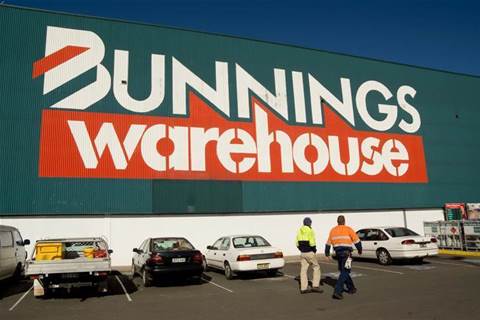channelnews : Are Australia’s News Organisations Set To Clash With Big Tech Once Again?

- by Admin
- June 18, 2024

Big Tech has had a tumultuous relationship with news organisations in Australia.
In April, Facebook closed down its news tab in Australia after its parent company, Meta, decided to reduce news content available on its services and stop paying publishers for news content.
Now, news organisations are again prepping for a battle with Google and other tech giants – this time over the use of artificial intelligence to summarise content taken from their websites in web search results.
Google’s development of AI summaries, rather than website links to search queries, is the main bone of contention with it handling about 94 per cent of all Australian web searches.
Likewise, Microsoft, Apple and OpenAI are also scraping websites and summarising their content as part of their own products.
Google has started trialling AI summaries in markets outside Australia, and claims that they encourage, rather than discourage, readers to click on publishers’ websites. But their response is being met with scepticism.
US-based Future Media published new research on Wednesday that warned of a major decline in traffic for publishers, showing that Google’s overviews are so comprehensive that they push links to top-ranking search results down the page by an average of 980 pixels, which equates roughly to a full-page scroll, reported The Australian Financial Review.
The study analysed 3,000 keyword searches across 19 genres on news articles, online retail, and magazines working with international publishers such as Daily Mail, Trinity Mirror Group, Hearst, Press Gazette, and Mi3 in Australia.
It found links for topics with high online advertising revenue such as food, health and shopping were relegated furthest down Google’s search results pages, suggesting Google is trying to keep this valuable traffic on its own platform.
Google Australia and New Zealand boss Melanie Silva tried to dampen played down the prospect of pain for news publishers. Unlike Facebook, Google will likely renew deals with some media companies under the Media Bargaining Code.
“From the [Google] labs findings that we’ve had over the last couple of months, we’re actually seeing that the AI overviews are creating more clicks. So whilst I don’t have a huge amount to share at this stage, it is always in our best interest to have a great ecosystem, and the early results are showing that people are actually clicking more,” Silva said recently at The Australian Financial Review AI Summit.
Research published by US-based Future Media on Wednesday warned of a major decline in traffic for publishers, showing that Google’s overviews are so comprehensive that they push links to top-ranking search results down the page by an average of 980 pixels, which equates roughly to a full-page scroll.
The study analysed 3000 keyword searches across 19 genres on news articles, online retail, and magazines working with international publishers such as Daily Mail, Trinity Mirror Group, Hearst, Press Gazette, and Mi3 in Australia.
It found links for topics with high online advertising revenue such as food, health and shopping were booted furthest down Google’s search results pages, suggesting Google is trying to keep this valuable traffic on its own platform.
Appearing at The Australian Financial Review AI Summit earlier this month, Google Australia and New Zealand boss Melanie Silva sought to play down the pain for news publishers. Unlike Facebook, Google has committed to renewing deals with some media companies under the Media Bargaining Code, which was written before generative AI platforms caught the public imagination.
“From the [Google] labs findings that we’ve had over the last couple of months, we’re actually seeing that the AI overviews are creating more clicks. So whilst I don’t have a huge amount to share at this stage, it is always in our best interest to have a great ecosystem, and the early results are showing that people are actually clicking more,” Ms Silva said.

Google headquarters
In a recent blog post, head of Google search Liz Reid claimed early user feedback of AI Overviews showed they were used as a “jumping-off point” to visit websites, providing “higher-quality clicks” because Google has done a better job of finding the right information and helpful webpages for them.
“AI Overviews work very differently than chatbots and other LLM products that people may have tried out. They’re not simply generating an output based on training data. While AI Overviews are powered by a customized language model, the model is integrated with our core web ranking systems and designed to carry out traditional ‘search’ tasks, like identifying relevant, high-quality results from our index. That’s why AI Overviews don’t just provide text output, but include relevant links so people can explore further. Because accuracy is paramount in Search, AI Overviews are built to only show information that is backed up by top web results,” said Reid.
Apple too is moving in the same direction with the launch of new AI-based features that will give users of its Safari web browser an AI-generated summary of an article at the top of a web page, while its Reader app will generate a summary and table of contents for longer articles.
But sceptics have noted that the AI won’t necessarily reference the source clearly, as opposed to the current search where the source is clearly labelled. Also, publishers will likely have no control over what content is being used in the summary.
The tech industry is coming to terms that it will be forced to pay for the professionally researched and written news content they use to train their large language models.
In May, News Corp and OpenAI signed a deal, understood to be worth more than $US250 million (A$377 million) over five years, for OpenAI to show its news content when people ask questions in ChatGPT.
Other publishers, including the Associated Press, the Financial Times and Axel Springer, have signed deals with OpenAI, while The New York Times and the Chicago Tribune are looking to bring legal action against it.
“It’s important that news publishers are compensated or benefit in exchange for the content AIs are scraping,” said Vanessa Lyons, CEO of newspaper industry group ThinkNewsBrands funded by Nine, Seven West Media and News Corp Australia
“Google has made significant changes over the past five years to try and keep users on its platform instead of clicking out, like the huge number of shopping ads on product review queries, or showing which streaming services show a movie. AI is no different, in pushing organic results further down the page to make it less likely the best content will appear at the top of the page. The problem with claims that AI overviews will drive more clicks is that there’s no way to verify it. Currently, no SEO tool can track it, and Google’s own Search Console tool won’t tell you either. So we’re relying on Google’s word,” Nick Broughall, a search engine optimisation specialist and independent publisher of product review website BTTR pointed out to the Australian Financial Review.
The Latest News
-
November 23, 2024Kangaroos march into AFLW grand final with crushing win over Port
-
November 23, 2024‘Bragging rights’: Giddey DENIES Daniels dunk, makes statement in Aussies’ physical clash
-
November 23, 2024Smith fires, Herbert in LIV mode as Aussie PGA heats up
-
November 23, 2024Georgia Voll bolts into Aussie squad as Healy replacement | cricket.com.au
-
November 23, 2024‘My story’s still not done’: Joel Dahmen drains ticklish putt to make cut at RSM, keeps hopes alive of retaining tour card – Australian Golf Digest





